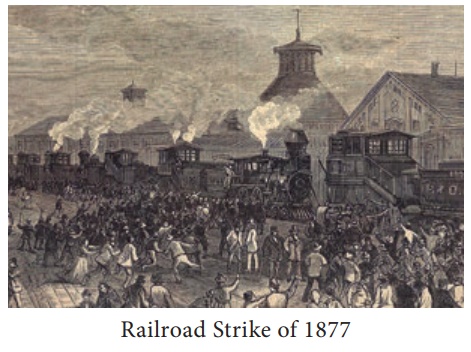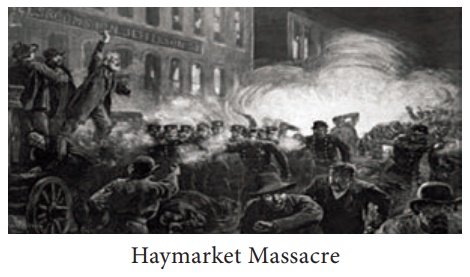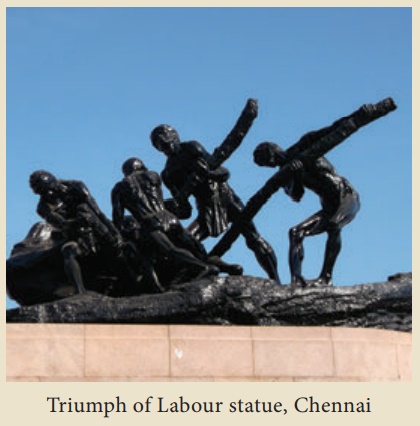Industrial Revolution | History - Working Class Strikes | 9th Social Science : History: Industrial Revolution
Chapter: 9th Social Science : History: Industrial Revolution
Working Class Strikes
Working Class Strikes
The difficult working conditions in the factories, long hours of
work, low wages, exploitation of women and children contributed to the growth
of labour unions. After the Civil War, workers organized strikes. One major
strike was the Great Railroad Strike of 1877. Wage cuts in the railroad
industry, in the context of a prolonged economic depression, led to the strike,
which began in West Virginia and spread to three additional states over a
period of 45 days before being crushed by a combination of vigilantes, National
Guardsmen, and Federal Army.![]()

Haymarket Massacre
A labour protest took place on 4 May 1886, at Haymarket Square in
Chicago. What began as a peaceful rally in support of workers striking for an
eight- hour day resulted in the killing of several workers by the police. To
commemorate the Haymarket Affair 1 May 1887 is observed as the Labour Day or
May Day or International Worker’s Day.

In India, Labour Day was first celebrated on May 1, 1923 in
Chennai. The celebrations were organised by the Labour Kisan Party of
Hindustan, founded by M. Singaravelu, one of the early leaders of the Communist
Party of India.

Related Topics